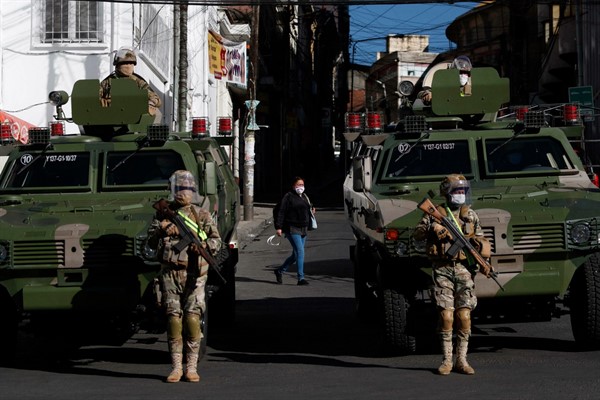When preliminary results in Bolivia’s election last October showed that longtime President Evo Morales had narrowly won a controversial fourth term in office, it provoked a national outcry. The tabulation of the vote count, which initially showed a dead heat, had been halted on Election Day, only to resume a day later with Morales having jumped into the lead. The Organization of American States quickly issued a statement denouncing the “inexplicable change” in results that “drastically modifies the fate of the election and generates a loss of confidence in the electoral process.”
Violent mass protests then erupted, fueled in part by the allegations of vote-rigging. Weeks later, after security forces sided with the protesters, Morales resigned and fled the country at the “suggestion” of the military.
An independent team of researchers recently analyzed data obtained by The New York Times from Bolivian electoral authorities, and found serious flaws in the OAS’ analysis. “We took a hard look at the OAS’ statistical evidence and found problems with their methods,” Francisco Rodriguez, an economist at Tulane University who participated in the study, told the Times. The OAS has pushed back against these criticisms, claiming the recent report was part of a “malicious campaign of disinformation.”

